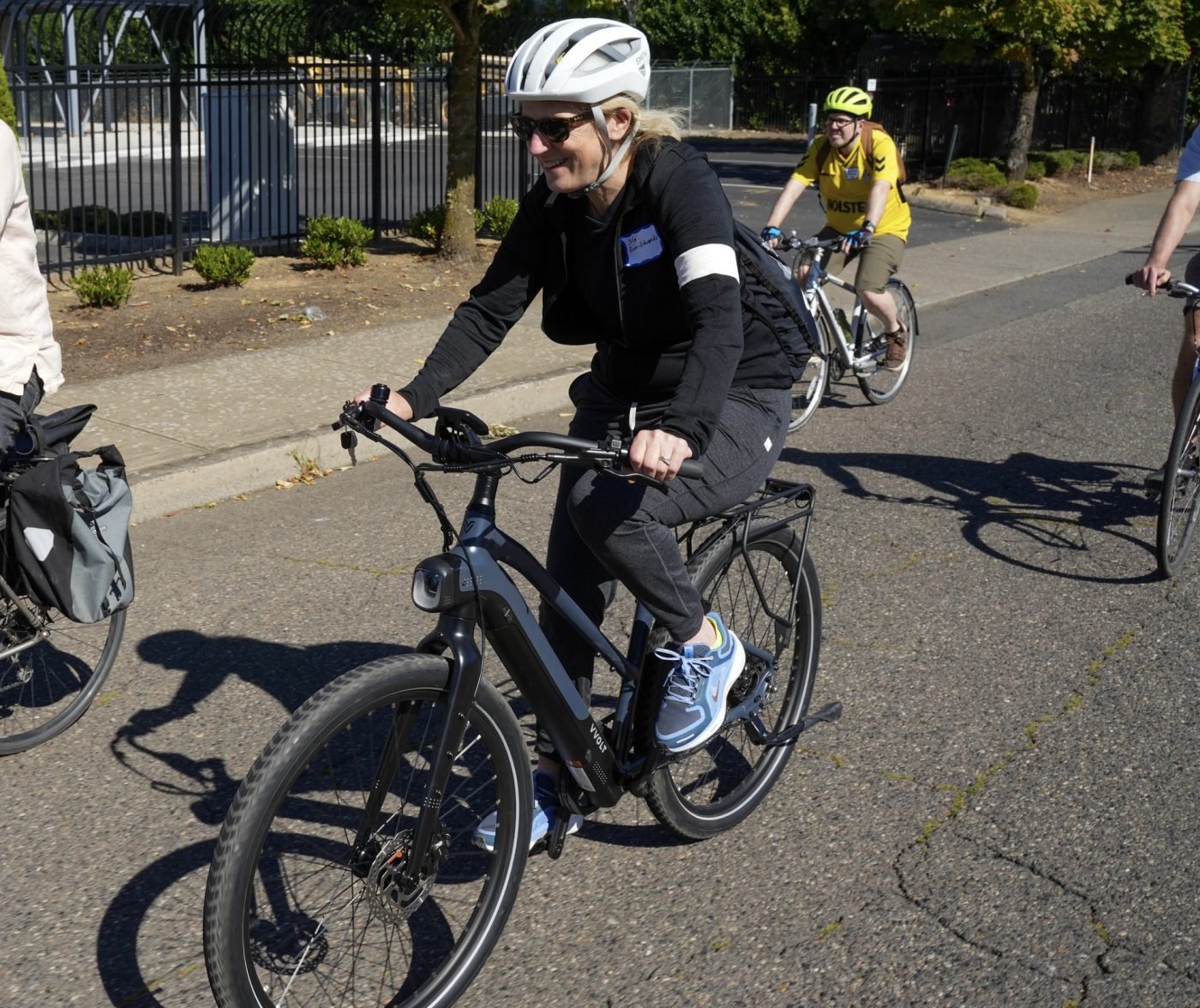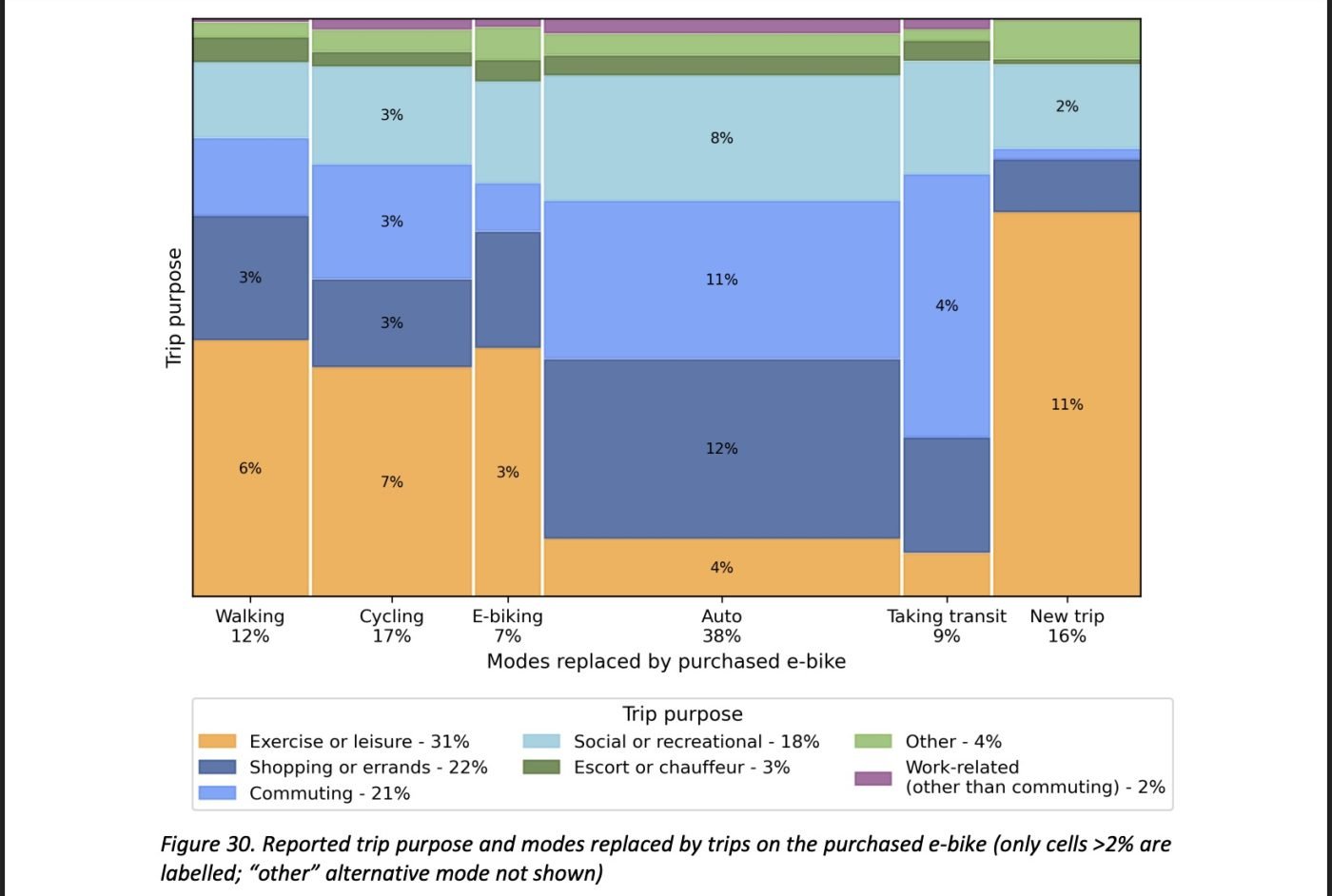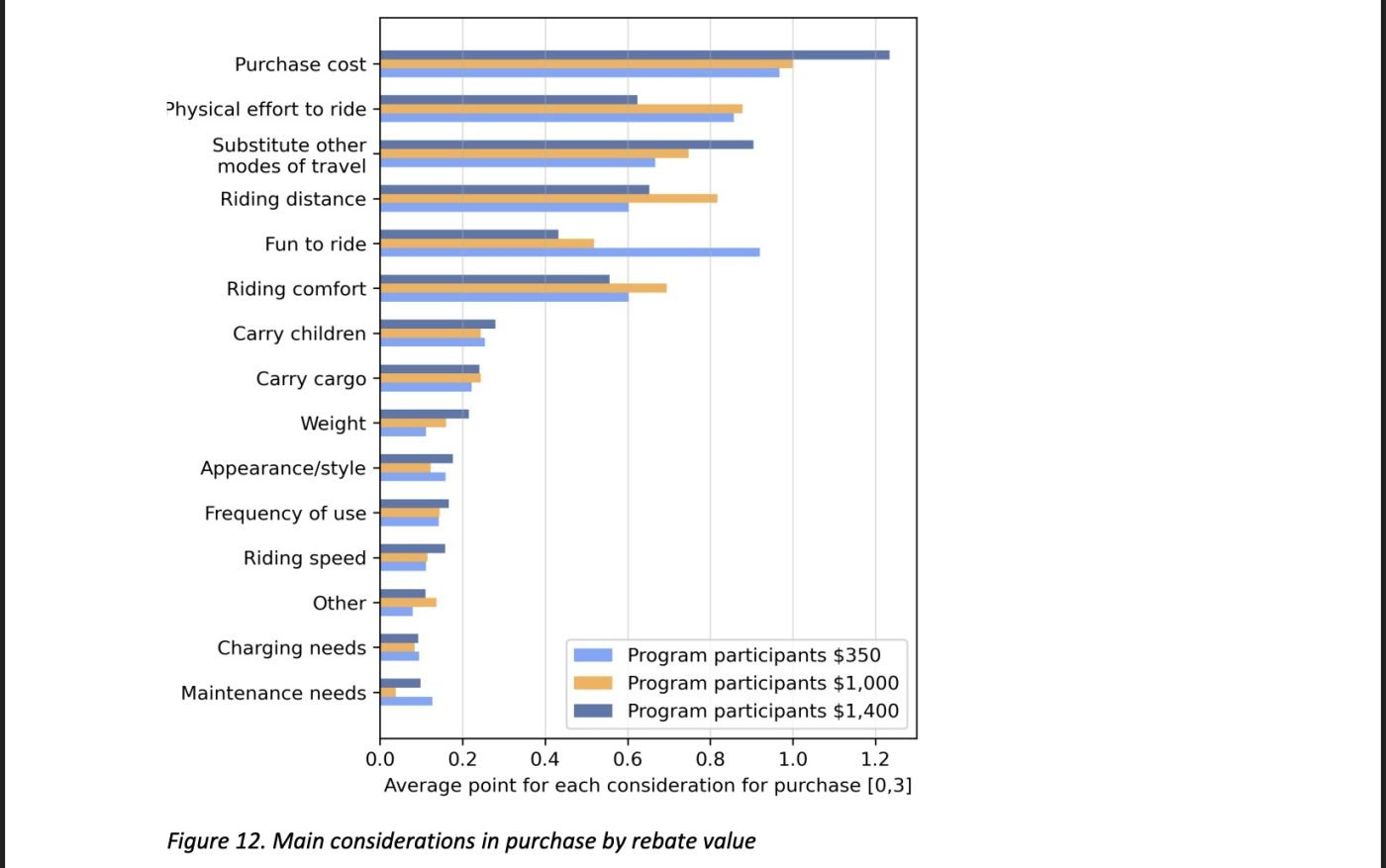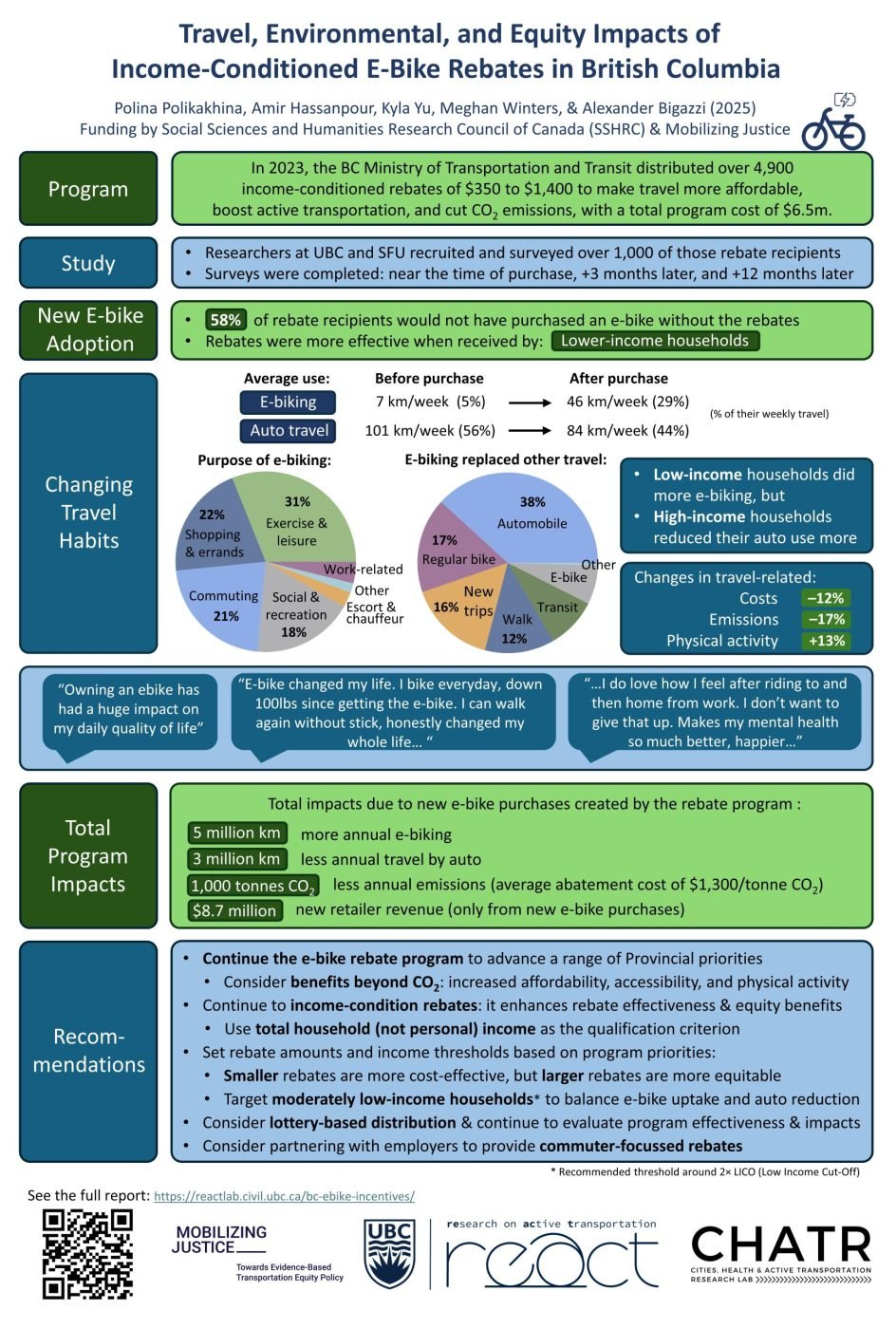
New research on electric bike rebates — released the same week the City of Portland announced a soft launch of their program — is good news for fans of using government subsidies to make e-bikes cheaper.
A study from University of British Columbia found substantial environmental, economic, and quality of life benefits in people who received rebates from the BC Electric Bike Rebate Program launched in 2023. Beyond the serendipitous timing of this research, it has another strong Portland connection: One of the study’s researchers, UBC Associate Professor Dr. Alex Bigazzi, is a graduate of Portland State University whose work on cycling and air quality made several headlines here on BikePortland.
In Travel, Environmental, and Equity Impacts of Income-Conditioned E-Bike Rebates in British Columbia by Polina Polikakhina, Amir Hassanpour, Kyla Yu, Meghan Winters, and Bigazzi (2025, with funding by Social Sciences and Humanities Research Council of Canada (SSHRC) & Mobilizing Justice) surveyed over 1,000 BC program participants for over one year. By nearly every metric, the ability to add an e-bike to their lives had significant positive benefits to their personal well-being and the world around them. The study found that:
- Emissions from travel dropped 17 per cent per year overall, equivalent to 1,000 tonnes of carbon dioxide
- Travel costs fell 12 per cent
- Post-purchase automobile use fell by 20% while e-bike use increased by a factor of 16
- Physical activity during travel rose 13 per cent
- Rebates cut e-bike purchase costs by 43 per cent, with the greatest benefits going to lower-income households
- $6.5 million in rebates generated $8.7 million in new retailer revenue.
The BC program offers rebates of $350 to $1,400 depending on personal income qualifications. The study tracked many statistics about participants including: purchase decisions, use of purchased e-bikes, and short-term (three months) and long-term (12 months) travel behavior changes post-purchase.
Among the findings is that folks who used the rebates purchased bikes with an average price of $3,200 (paying an average of $1,900 after the rebate). “E-bike price was inversely related to rebate value, showing that the rebates were primarily used to decrease cost rather than to acquire more expensive e-bikes,” the study summary reads.


Using demographic data, researchers found that reductions in automobile use were greater for those with higher household income and those living in suburban areas that are relatively dense but with poorer access to destinations by walking, cycling, or public transit. Increases in e-bike use were also greater for those with lower household income and those living in hillier areas.
Along with demographic data, the study provides recommendations for how to make them work even better.
Given behaviors of rebate recipients, researchers say geographic prioritization is worth considering, because places with things like hillier terrain and limited public transit options will have greater rebate impacts. This seems to be fodder for a special rebate dispensation to folks who live in the southwest/west hills.
It has always bugged me that politicians seem to have no problem supporting e-car rebates, but balk at doing the same for e-bikes. I know it can’t fight the power of motonormativity, but this study found e-bike rebates are cost-competitive with car rebates for GHG mitigation. But wait, there’s more: “[E-bike rebates] also generate a range of other important benefits through automobile mode substitution and increased physical activity.” So yeah, e-bike rebates actually have more bang-for-our-buck than e-car rebates. The study should also serve as a reminder to never limit framing e-bike rebate benefits as solely a climate change fighting tool. “Considering mobility and physical activity co-benefits will be increasingly important if declining automobile emission rates diminish the effectiveness of e-bike rebates for GHG reduction,” researchers write.
“E-bikes bring benefits to users in cost, mobility and physical activity,” said study co-investigator Dr. Meghan Winters of Simon Fraser University. “But the impacts of this rebate program are also more broad, with societal benefits of reduced emissions, replacement of car trips, and generated revenue.”
And to top it all off, rebate users cited “fun and enjoyment” as one of the top reasons they were eager to hop on an e-bike.
— View an article on the study by UBC which has links to the study summary and full report.




